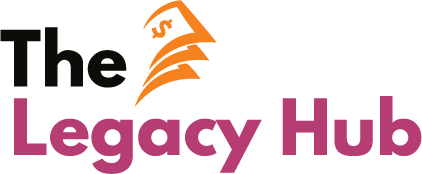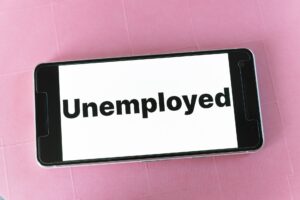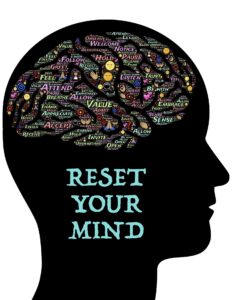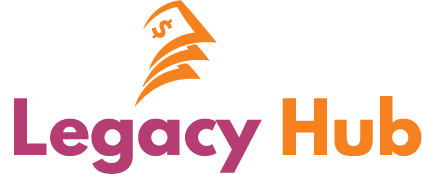I remember a time when a loaf of bread was at a stable price of KES 50. A packet of milk too, and even cooking oil was moderately priced. As things stand at the moment, a packet of milk is KES 65, the egg prices are constantly fluctuating and still more taxes on flour -among other commodities- are being proposed. The cost of living is on a constant rise and we all know it will hardly come down.
The nature of our growing economy is such that the majority of Kenyans have to worry about monthly expenses, medical costs, debts, and a whole lot of other personal finance challenges. But whether your finances are a passing concern or a continuous cause of worry, you don’t have to deal with them forever. For every financial challenge, there are smart money moves you can learn to help you adjust your strategy and invest for a better future.
Challenge No. 1: Financial Illiteracy
Almost all money problems stem from a lack of basic understanding of how to handle money and how best to invest. Money skills such as proper budgeting, performing monthly financial analysis and review, and choosing effective debt repayment methods are not inborn. And sadly, neither are they taught in our schools.
The majority of Kenyans are financially illiterate and don’t even acknowledge their lack of these vital financial skills. And so, where our finances are concerned, most of us simply wing it and hope that the future turns out better.
Solution: Make time to learn how to manage your finances
Healthy personal finance habits are skills you can learn. As we mentioned when discussing the money mistakes you shouldn’t make this year, financial literacy will help you make sound decisions that positively contribute to your wealth-building journey. You will be in the best position to manage your retirement accounts, your debt repayments plans, and even your online trading accounts.
Challenge No. 2: Not enough income
Many Kenyans only have one source of income and as you can imagine, this is always insufficient to cover their monthly expenses. It’s an irrefutable fact that one income is too close to none. Think of rent, medical bills, student loans, and the list goes on. Definitely a single paycheck can’t support all these monthly needs. And so, what do most people do when money emergencies come up? They borrow, which in itself is an added financial burden.
Solution: It’s time to consider multiple streams of income
There’s never been a better time to start a side hustle. The internet has opened up so many opportunities for earning active or passive income. With your smartphone, you have access to a wider audience and thus can strategically position yourself as a thought leader in your field. You can create online courses, you can start a blog, and you can create an online shop for your craft. No hobby is too insignificant to monetize!
Challenge No. 3: Debt burden/trap
As we’ve seen above, with a single income and poor money management, one debt will easily lead to another, and so on. Add this to the fact that mobile loans are easily available, most Kenyans find themselves deeper in bad debts sooner than they can realize. However, I will not overlook how difficult it is to entirely avoid debts and also the fact that some debts -under specific circumstances- are good. For instance, taking debt to purchase something that will increase in value.
Solution: Make debt repayment a top financial priority
This especially applies to debts that attract high-interest rates. It will also be helpful to choose a debt repayment method that best suits your financial position.
While some debts like student loans and mortgages might take longer to repay, make it a point to clear other small debts you have. And if you are entangled in the web of credit card debt, the first step is to cease using them completely. Then, examine your monthly budget to see which expenses you can live without.
Watch how you can effectively pay debt HERE
Challenge No. 4: Failing to budget
If you’re like most Kenyans, you’re probably not following professional financial advice by creating and sticking to a budget. The single habit that will guarantee you financial stability is creating a budget. A budget makes will make it simpler to pay bills on time, develop an emergency fund, and save for significant purchases like a vehicle or home.
Despite its numerous parks, many Kenyans either completely disregards budgets or do not stick to one.
Solution: Prepare a monthly budget and keep track of your monthly expenses.
Before creating a budget, I recommend you perform a candid analysis of your financial position; noting down your income, expenses, debts, and all other tiny money matters. The analysis report will help you create a budget that will map out your goals, save you money, keep track of your progress, and make your dreams a reality. What’s even more, you can do all of these (and much more) with our Legacy Budget Tracking Template.
Challenge No. 5: Lack of emergency funds
As someone who has had to bear unexpected expenses, I can tell you how tough it was to obtain the money I needed at a moment’s notice and how grateful I was to have an emergency fund. The situation of unexpected expenses is one which most Kenyans can closely relate to and yet, when the emergency has been taken care of, most people rarely put plans in place to shield them from finding themselves in a similar position.
Solution: Create an emergency fund
An emergency fund is simply money placed aside to deal with life’s unforeseen expenses. The money will help you live for a few months if you lose your work or need to pay for anything unexpected.
Sometimes, it will be tempting to use the funds to take a trip, pay off large debts, or other significant expense that occurs. To wade this temptation, you should constantly make a list of acceptable expenses for this money. Ensure that they are true emergencies.
I’ll leave you with this gentle encouragement: Whatever your financial shortcoming, it is never too late to work on them and build healthy money habits. It’s time to start being intentional with your hard-earned cash. It’s time to tell your money where to go and what to do.







